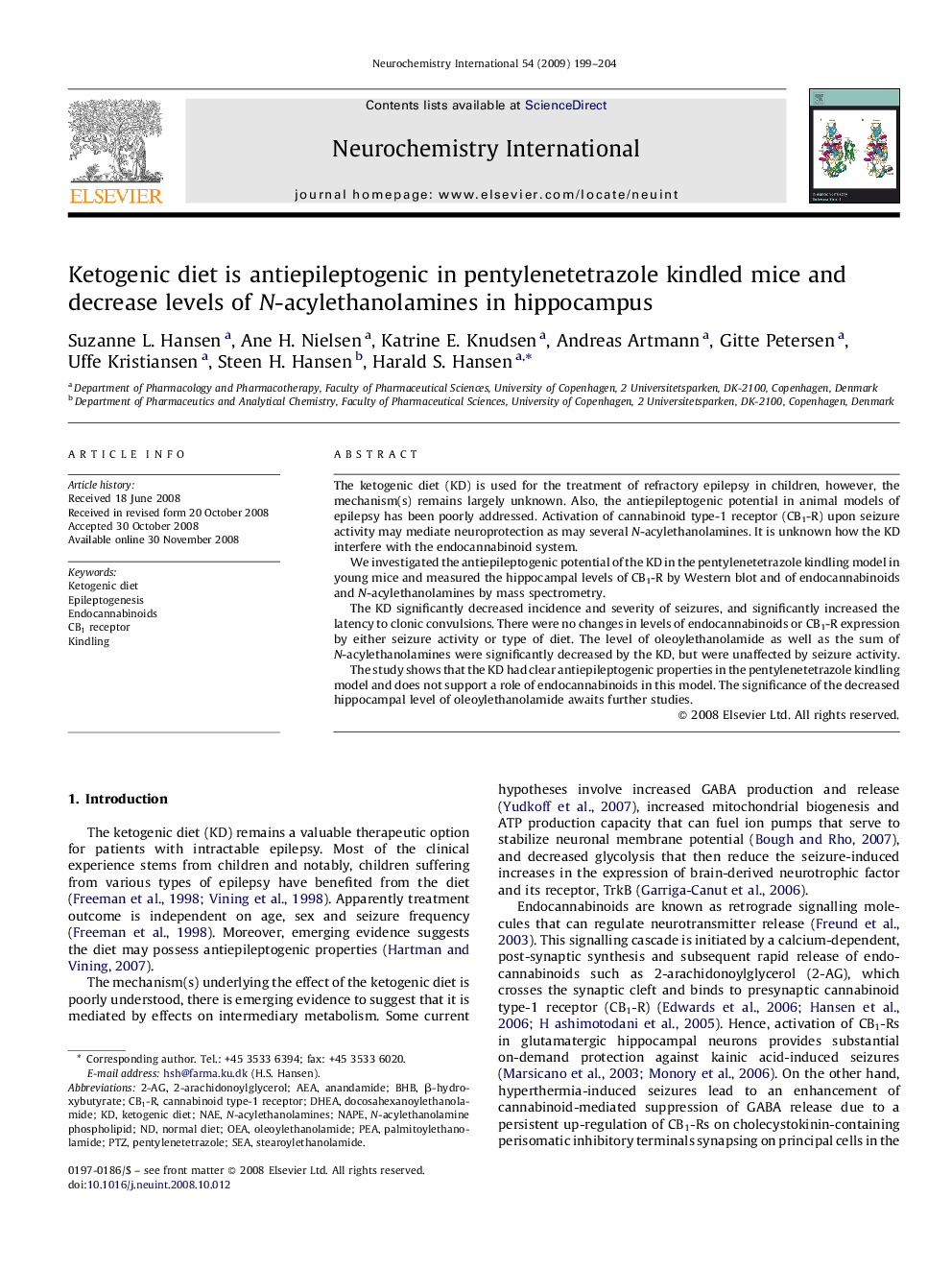| Article ID | Journal | Published Year | Pages | File Type |
|---|---|---|---|---|
| 2201517 | Neurochemistry International | 2009 | 6 Pages |
The ketogenic diet (KD) is used for the treatment of refractory epilepsy in children, however, the mechanism(s) remains largely unknown. Also, the antiepileptogenic potential in animal models of epilepsy has been poorly addressed. Activation of cannabinoid type-1 receptor (CB1-R) upon seizure activity may mediate neuroprotection as may several N-acylethanolamines. It is unknown how the KD interfere with the endocannabinoid system.We investigated the antiepileptogenic potential of the KD in the pentylenetetrazole kindling model in young mice and measured the hippocampal levels of CB1-R by Western blot and of endocannabinoids and N-acylethanolamines by mass spectrometry.The KD significantly decreased incidence and severity of seizures, and significantly increased the latency to clonic convulsions. There were no changes in levels of endocannabinoids or CB1-R expression by either seizure activity or type of diet. The level of oleoylethanolamide as well as the sum of N-acylethanolamines were significantly decreased by the KD, but were unaffected by seizure activity.The study shows that the KD had clear antiepileptogenic properties in the pentylenetetrazole kindling model and does not support a role of endocannabinoids in this model. The significance of the decreased hippocampal level of oleoylethanolamide awaits further studies.
